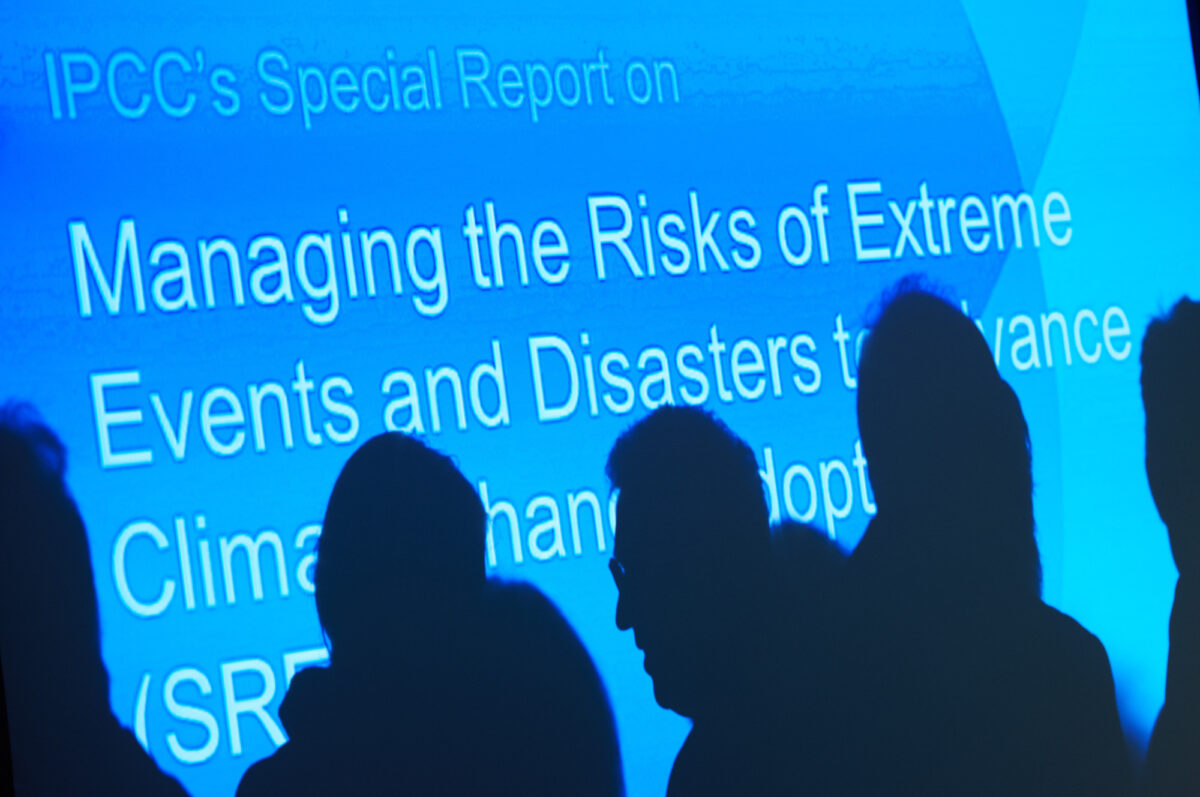Quick Answer
The IPCC is the Intergovernmental Panel on Climate Change, a group of hundreds of scientists from 195 countries brought together by the United Nations to assess the latest science of climate change. The IPCC’s purpose is to “provide governments at all levels with scientific information that they can use to develop climate policies.” [Reference: https://www.ipcc.ch/about/]
Image above: IPCC Photo / David Plas, Copyright: © Belspo / Nevens, CC BY-NC-ND 2.0 via Flickr
The Intergovernmental Panel on Climate Change (IPCC) was created by the United Nations in 1988 to review scientific conclusions on climate change that have already passed peer review and been published in the scientific literature.
The IPCC includes hundreds of climate scientists and is open to all member countries of the United Nations and the World Meteorological Organization.
Since 1990, the IPCC has published a set of reports about climate change approximately every seven years. The reports focus on the physical science of climate change, its impacts, and strategies to mitigate and adapt to climate change. These assessment reports involve more than 500 lead authors and 2,000 reviewers, and cite over 9,000 published scientific literature sources. Policymakers around the world use the information from the reports to make decisions.
The IPCC also publishes other assessment reports, such as a special report from 2018 on the impacts of a global temperature rise of 1.5 °C above pre-industrial temperatures, and the actions needed to prevent warming from reaching beyond this level.
In 2007, the IPCC was awarded the Nobel Peace Prize for its work in assessing and disseminating knowledge about climate change.



